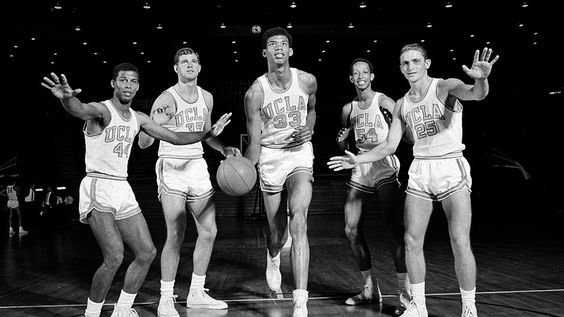When I played basketball for UCLA, I learned the hard way how the NCAA’s refusal to pay college athletes impacted our daily lives. Despite the hours I put in every day, practicing, learning plays, and traveling around the country to play games, and despite the millions of dollars our team generated for UCLA — both in cash and in recruiting students to attend the university — I was always too broke to do much but study, practice, and play.
What little money I did have came from spring break and summer jobs. For a couple summers, Mike Frankovich, president of Columbia Pictures and a former UCLA quarterback, hired me to do publicity for his movies, most memorably Cat Ballou (which was nominated for five Academy Awards).
In 1968, I needed to earn enough summer money to get through my senior year. So, instead of playing in the Summer Olympics, I took a job in New York City with Operation Sports Rescue, in which I traveled around the city encouraging kids to go to college. Spring breaks I worked as a groundskeeper on the UCLA campus or in their steam plant repairing plumbing and electrical problems. No partying in Cabo San Lucas for me. Pulling weeds and swapping fuses was my glamorous life.
Despite my jobs, every semester was a financial struggle. So in order to raise enough money to get through my junior and senior years, I let Sam Gilbert, the wealthy godfather of a friend of mine, scalp my season tickets to his rich friends. This brought me a couple thousand dollars. Spread out over a year, it was still barely enough to survive. I was walking out on the court a hero, but into my bedroom a pauper.
Naturally, I felt exploited and dissatisfied. In my first year, our freshman team beat the varsity team, who had just won the NCAA championship. We were the best team in the country, yet I was too broke to go out and celebrate. The more privileged students on academic scholarships were allowed to make money on the side, just not the athletes.
And unlike those with academic scholarships, if we were injured and couldn’t play anymore, we lost our scholarships but still had medical bills to worry about. We were only as valuable as our ability to tote that ball and lift that score.
Coach Wooden told us that there was no changing the NCAA’s minds, that they were “immovable, like the sun rising in the east.” I never personally encountered any players who cheated or shaved points, but I could see why some resorted to illegally working an extra job or accepting monetary gifts in order to get by.
The worst part is that nothing much has changed since my experience as a college athlete almost forty years ago. Well, one thing has changed: the NCAA, television broadcasters, and the colleges and universities are making a lot more money.
Read full article at jacobinmag.com

